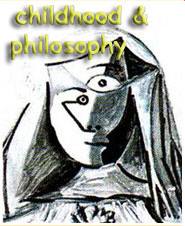the language of the school: alienating or emancipating?
DOI:
https://doi.org/10.12957/childphilo.2017.28318Keywords:
escola, pedagogia, cavernaAbstract
The school has often been accused of being a normalizing, colonizing and alienating machinery that is more of less violently imposing and reproducing a certain social order and this mainly through the language which is used and (to be) learned. Some of the analyses are famous. The sociolinguistic one of Basil Bernstein making a distinction between the use of a restricted and an elaborated code and suggesting a clear relation to social class. Illich’ sharp attack of the way in which various political authorities imposed one ‘national’ language thereby devaluating vernacular languages. And of course, Paulo Freire’s critique of the way in which the ‘words’ (language) of the dominant social group (the oppressors) not only alienate the oppressed from their experiences but also operates as a mechanism to install and reproduce the existing unjust social order. While recognizing the importance and value of these analyses, in our contribution we will argue from a strictly pedagogical perspective that school always implies a (violent) rupture and impingement on the ‘natural’ language (including however also the language of the dominant group). And we will try to indicate that if the school actually operates as a school (that is not as an institution, but as a very particular kind of gathering of people and things that spatializes ‘free time’ and grammatizes the world), then the language of the school is also always a language to come (or in-form-ation) which invokes also a community to come. And hence, school language is always artificial and in the making and precisely therefore also truly emancipating.




